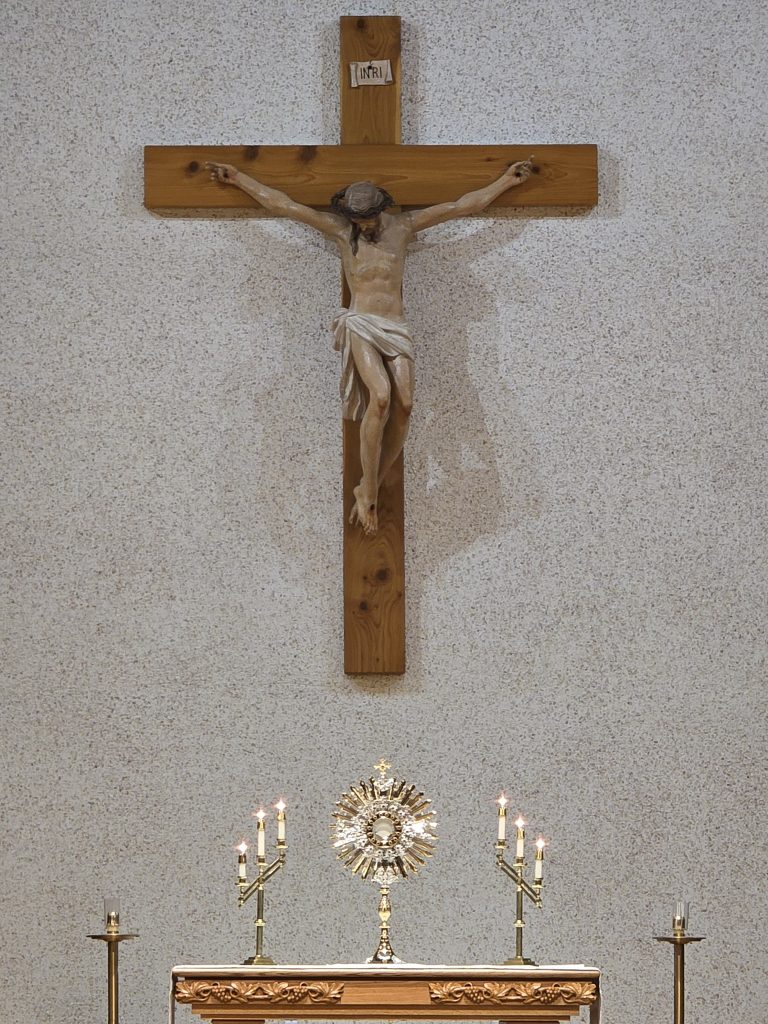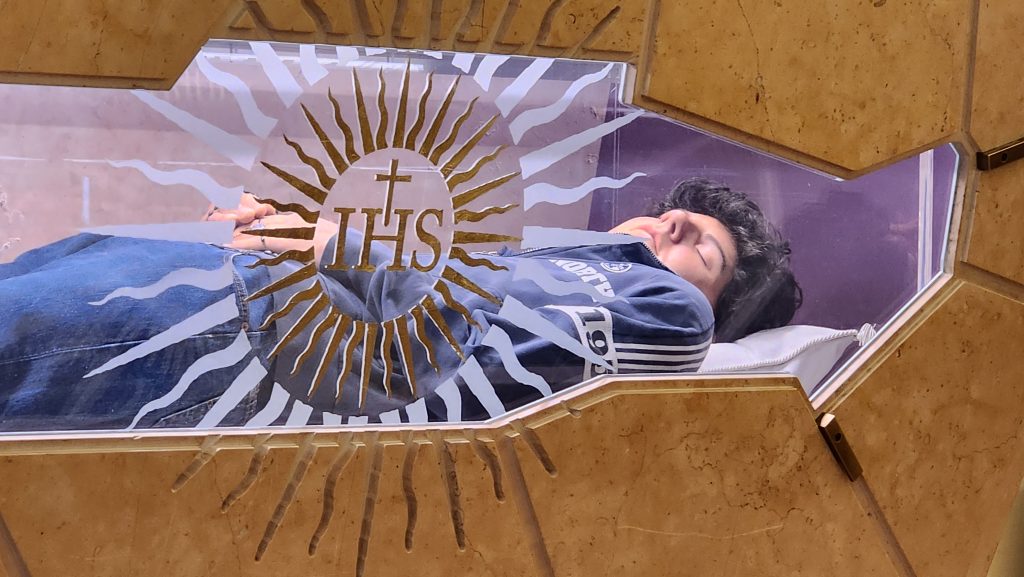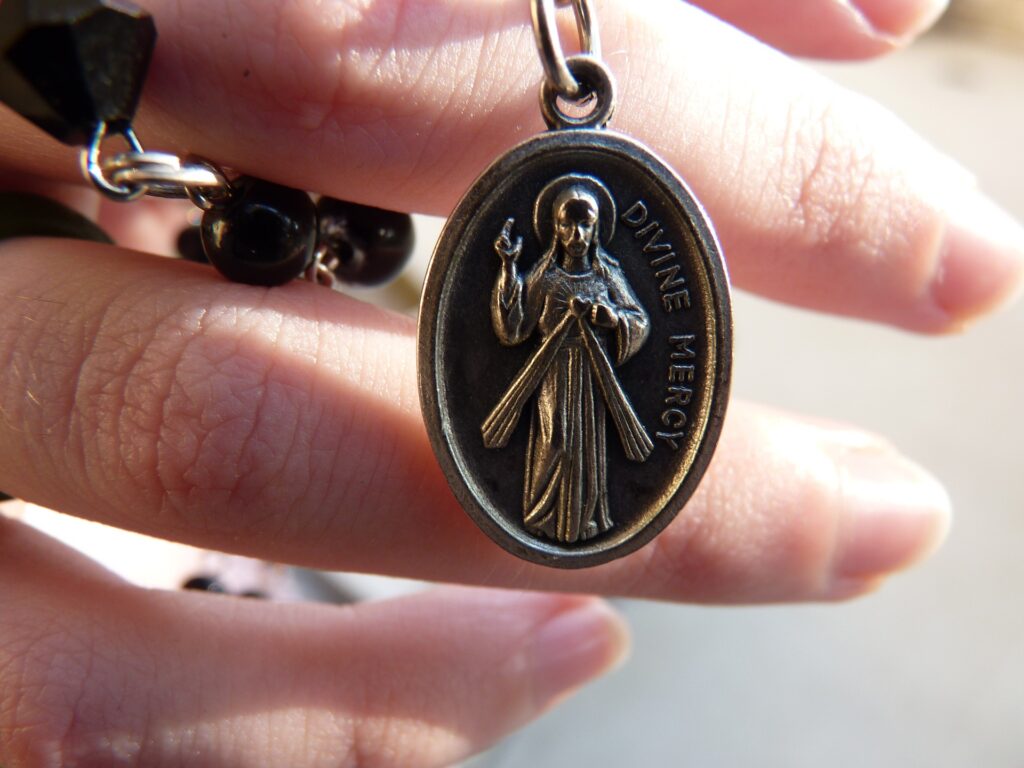
By Deacon Richard Hay
While Confirmation is a new sacrament for each one of you – it is not the first time you have encountered the Holy Spirit in your faith – he has been with you all along the way – and will continue to be with you throughout your life.
The first sacrament where each of us encounter the Holy Spirit is at our baptisms – whether we were brought for baptism as a baby by our parents or maybe it happened a little later in life – the Holy Spirit is right there.
First, when the waters of the baptismal font are blessed at the Easter Vigil – the Holy Spirit is invoked for that blessing by the priest and of course those same blessed waters are poured over our heads as we are baptized in the name of the Father, and of the Son, and of the Holy Spirit.
The next sacrament we receive is First Holy Communion and the Holy Spirit is right there as well.
First in the Apostles Creed we profess at every mass:
“I believe in God, the Father almighty, Creator of heaven and earth, and in Jesus Christ, his only Son, our Lord, who was conceived by the Holy Spirit…”
A few sentences later in the creed we profess that we “believe in the Holy Spirit…”
Then, after the altar is prepared and the gifts have been offered, the priest begins with the epiclesis, this is where he extends his hands over the gifts of bread and wine and asks the Father to send the Holy Spirit to “come down upon these gifts and make them holy so they may become for us the body and blood of our Lord Jesus Christ.”
After this we hear the priest begin to pray the Eucharistic Prayer – that is the part of the mass where the priest prays the words of consecration at the altar over the bread and wine.
Except for the priest, we are all kneeling at this point in the mass because of the holiness of that moment and the Holy Spirit’s presence.
The blessing we receive at the end of each mass also invokes the Holy Spirit as part of the Blessed Trinity. The priest says:
“The Lord be with you” and we respond, “And with your spirit.” Then the priest blesses us in the name of the Father, and of the Son, and of the Holy Spirit.”
Every time you attend the mass, you have received these gifts and graces through the working of the Holy Spirit.
Now all of you will soon be encountering the Holy Spirit through the Sacrament of Confirmation. This sacrament is considered the fullness of the Holy Spirit in our Church. It is the same spirit that transformed the apostles from being fearful in the upper room after Christ’s death to being apostles willing to boldly proclaim the good news, about the Risen Christ in the middle of the temple courtyard and they did so with no fear at all. They were no longer afraid of the consequences of being one of Jesus’s disciples. The Holy Spirit emboldened them…
According to a document called the Dogmatic Constitution on the Church, through Confirmation, we as Catholics are “more perfectly bound to the Church” and made to be “true witnesses of Christ, more strictly obliged to spread the faith by word and deed.” Confirmation seals believers in the Spirit, anointing them and empowering them to carry on the mission of Christ. Just like Christ giving the Holy Spirit to the apostles before He ascended into heaven.
During the Sacrament of Confirmation, the bishop lays his hands on your head and then anoints your forehead with Sacred Chrism oil as he says, “Be sealed with the gift of the Holy Spirit.”
Sacred Chrism, which is oil mixed with perfume – something called Balsam – is blessed each year just before Easter at what is called the Chrism Mass – with all the priests and deacons of the dioceses in attendance at the Cathedral. When the bishop blesses it, he actually breaths on that oil – to call on the same Holy Spirit received by the apostles because he as our bishop is a successor to the apostles in his ordination as a bishop. It is also a reminder of how the Holy Spirit moved across the waters of the earth when it was created.
There are seven gifts of the of the Holy Spirit and I am sure you all have studied those so I won’t go back over them right now, but I would like to share with you a beautiful prayer that can remind us of these gifts. It goes like this:
Bless me with the knowledge to know right from wrong,
Fortitude to stand up and be strong,
Understanding to follow God’s way,
Piety to worship and pray,
Counsel to enlighten and guide me,
Wisdom to feel Your presence beside me,
And fear of the Lord to always be awed by the mighty wonders of our God!
Amen.
On the day of your confirmation, we usually hang up a beautiful wrought iron candle stand on the wall and there will be seven candles lit on that – each one representing a gift of the Holy Spirit we just heard in that prayer – even if you don’t remember all seven in that moment – say a little prayer when you see those candles and thank God for His gifts through the Holy Spirit that you will each be receiving.
As I wrap up this reflection, let me share this – many times confirmation can seem like an end to a journey because it is the last sacrament you receive at this stage in your lives. The Sacrament of Marriage comes later as well as Holy Orders if you feel called to a vocation to the diaconate or priesthood.
However, it really is the beginning. This is a sacrament that you choose to receive. Most of your parents made the decision to have you baptized and start you in the faith as a baby when you were baptized. Then it was expected that you would receive First Holy Communion a few years later as you all did. However, at confirmation – you are involved in this decision – including picking your confirmation name and a sponsor.
As I mentioned earlier, through your confirmation, you are “more perfectly bound to the Church.”
So even more than before, you are called, just like all of us who have already been confirmed in the Church, called to be the Church, called to be part of the body of Christ, by your presence in the life of the Church.
So be at the mass as often as you can to receive the Most Holy Eucharist, receive the sacrament of reconciliation regularly, attend the various activities that happen around the parish, and fulfill your calling just like the apostles did to love and serve the lord by loving and serving each other.
Don’t just exist but be present and close to the Lord through the Holy Spirit, which you will receive in His fullness at your confirmation.
As Saint Carlo Acutis would say:
“We are born originals, but many die as photocopies.”
What he means is that each of us are created uniquely in God’s image but rather than staying unique originals – we tend to copy the behaviors of others and lose our originality.
Be an original – be who you are called to be by God.
Amen.









